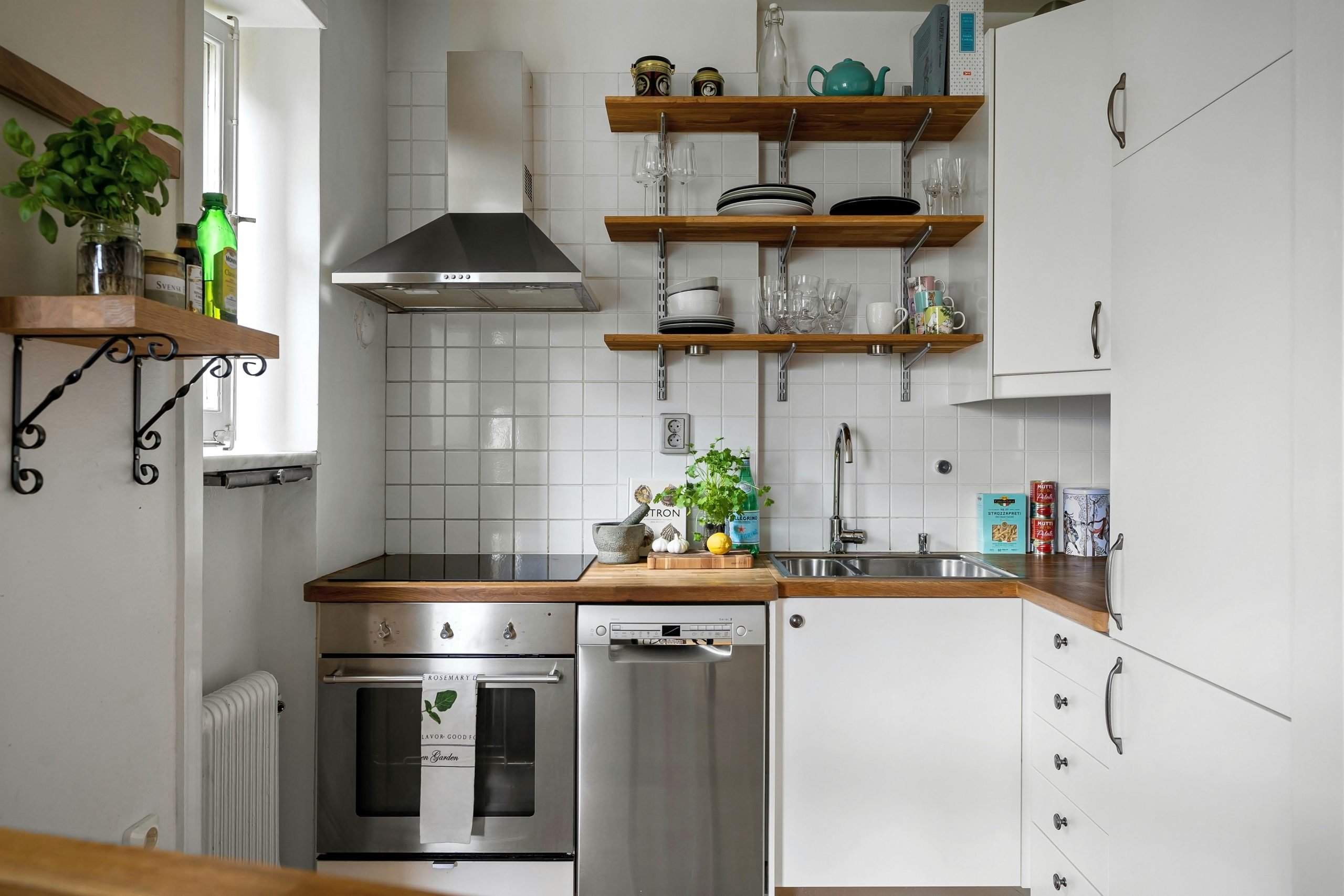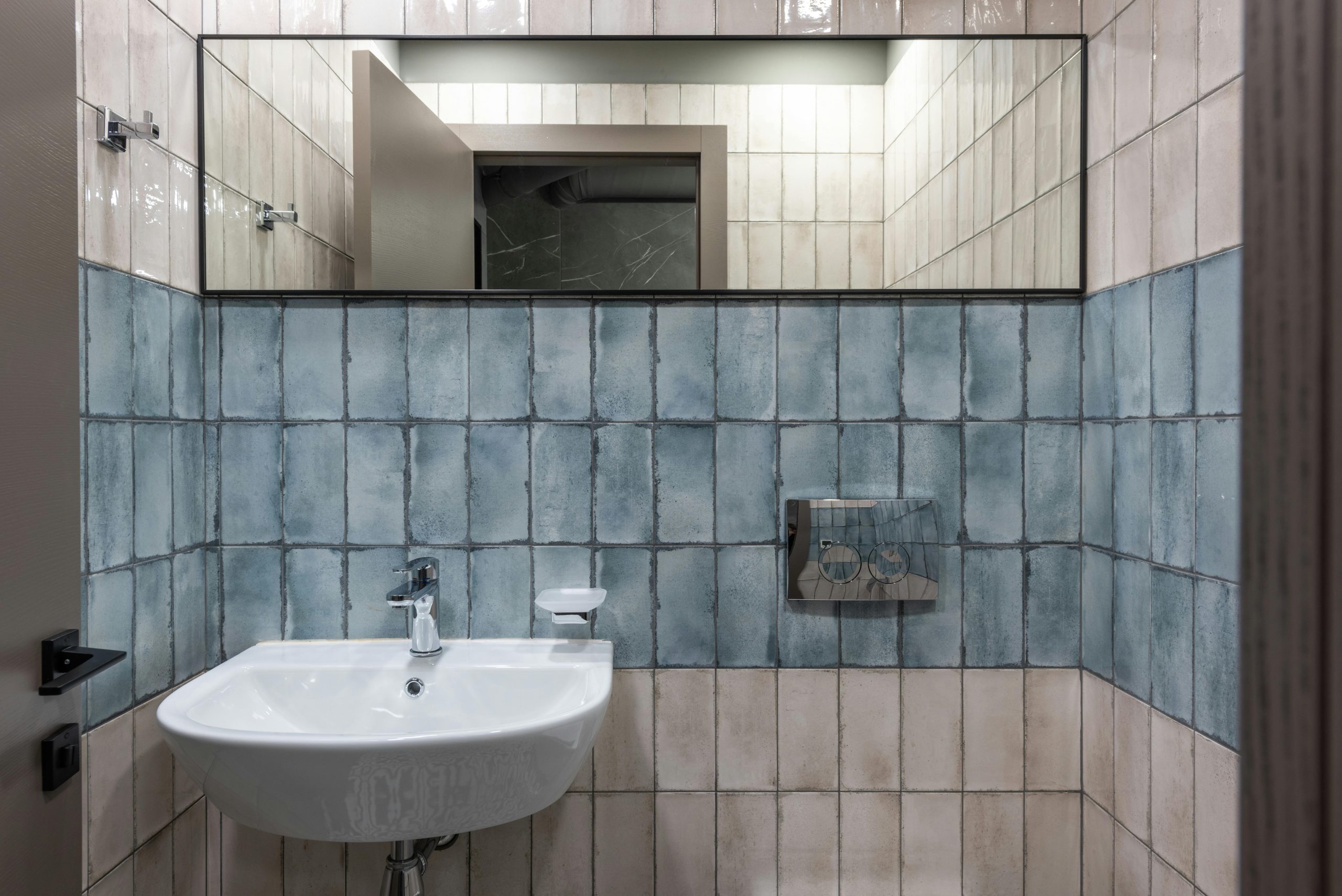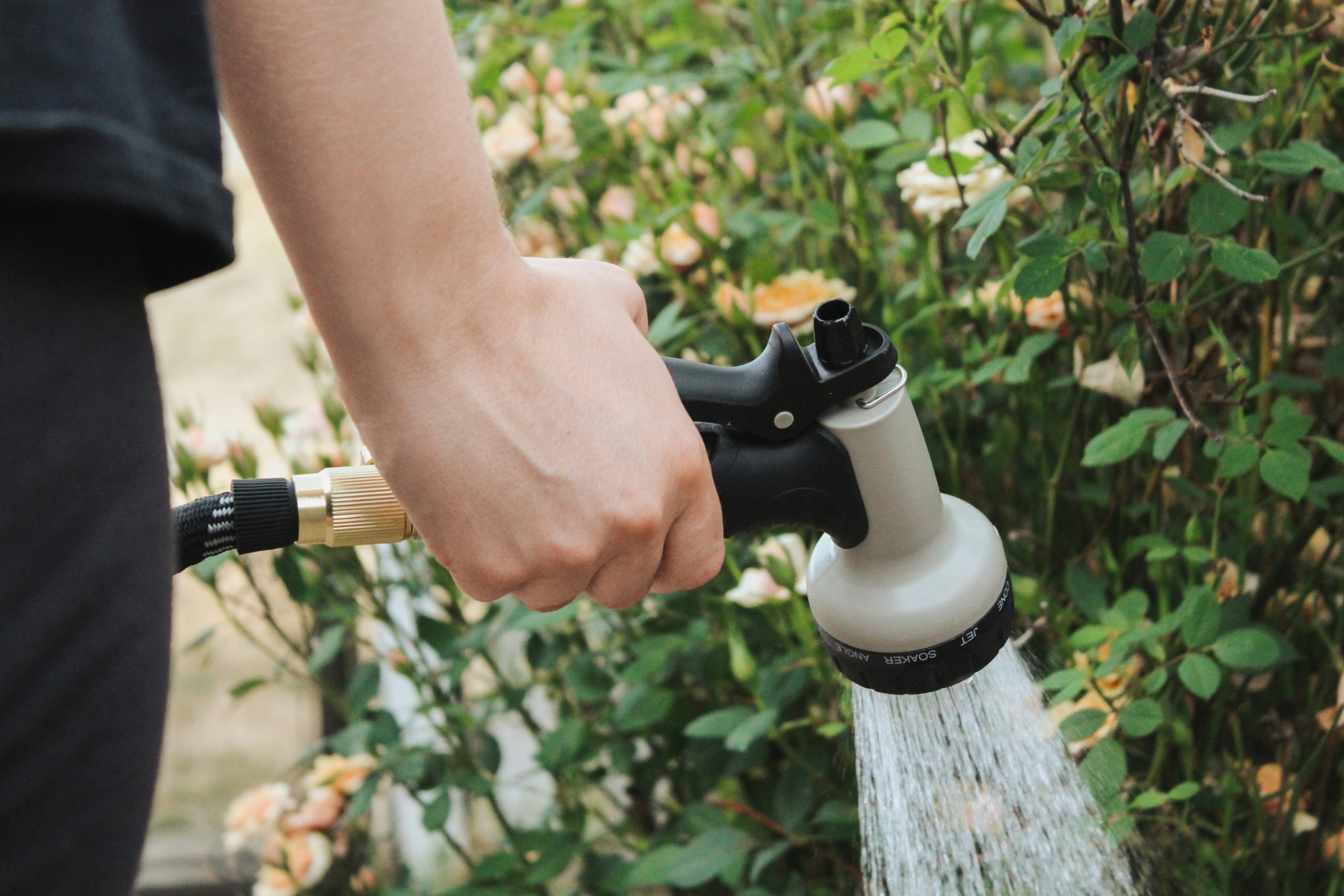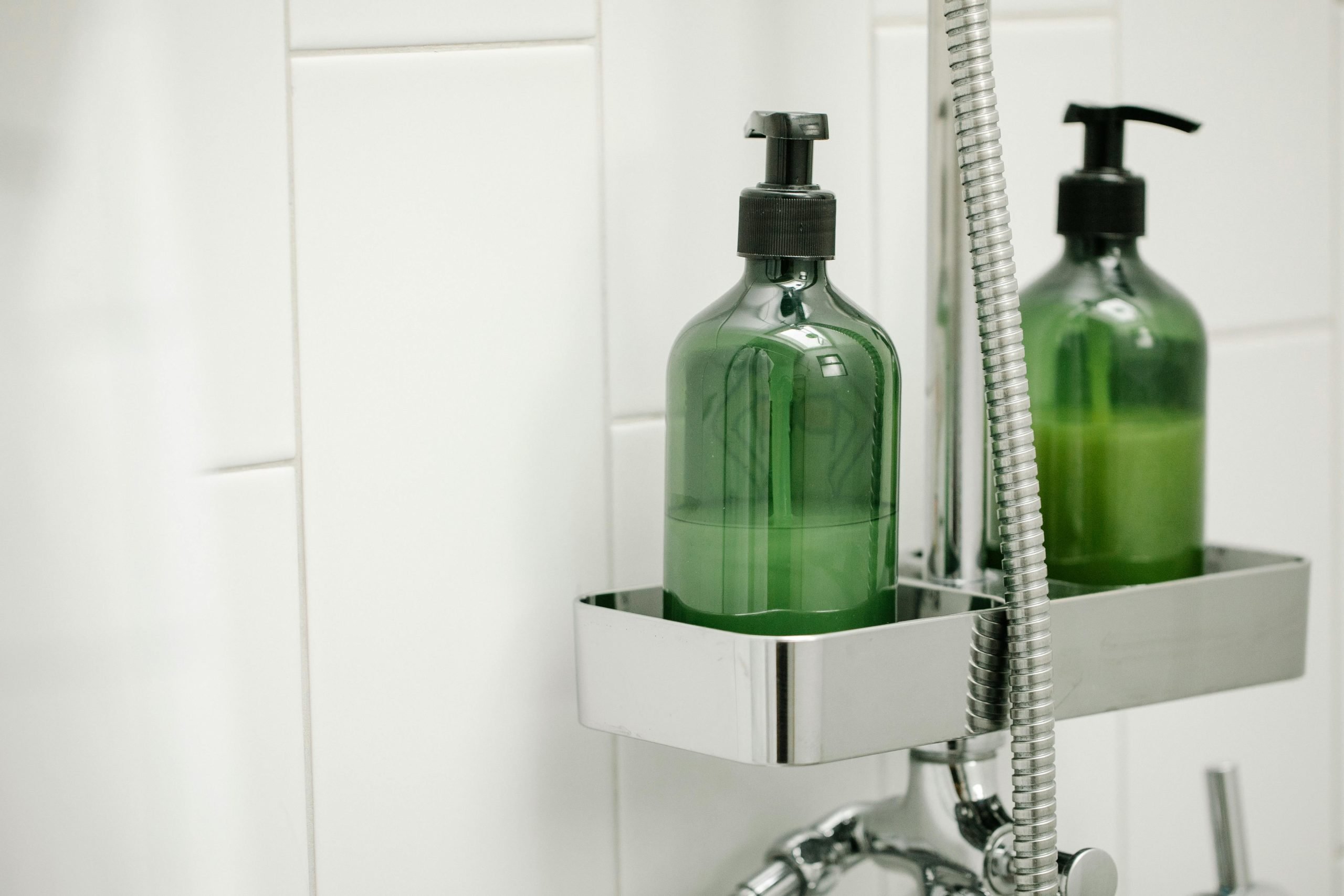Plumbing systems play a crucial role in our daily lives, working behind the scenes to keep things flowing smoothly. Whether washing dishes, showering, or flushing the toilet, you rely on your plumbing system daily without giving it a second thought. But have you ever considered how this intricate network of pipes and fixtures functions?
Understanding plumbing systems is essential for homeowners looking to maintain their property and for business owners seeking to ensure the smooth operation of their commercial establishments. In this comprehensive guide, we’ll delve into the world of plumbing, exploring the different types of systems found in residential and commercial settings, and shedding light on how they work and the benefits they provide.
So, whether you’re a homeowner looking to tackle a plumbing issue or a business owner seeking to enhance the efficiency of your operations, Service by Scott is here to guide you through the intricacies of plumbing systems. Let’s explore how these systems work and discover the benefits, empowering you to manage this essential component of everyday life effectively. Let’s dive in!

Residential Plumbing Systems
Homeowners should understand the intricacies of residential plumbing systems to ensure their properties function smoothly. From supplying clean water for drinking, cooking, and bathing to efficiently removing wastewater, these systems play a vital role in maintaining the comfort and functionality of residential spaces. Let’s look into the key components of residential plumbing systems and explore how they contribute to peak performance in homes.
Supply System
The supply system of a residential plumbing setup is responsible for delivering clean water to various fixtures and appliances throughout the home. It begins with a water source, typically a municipal water supply or a private well, which feeds into the home through a main water line. From there, the water is distributed throughout the house through a network of pipes and fittings.
Pipes used in residential plumbing systems are commonly made of materials such as copper, PVC (polyvinyl chloride), or PEX (cross-linked polyethylene), each offering advantages for durability, cost-effectiveness, and ease of installation. Along the distribution route, shut-off valves allow homeowners to control water flow to individual fixtures or areas of the house, providing convenience and peace of mind in case of leaks or maintenance needs.
Efficiently designed supply systems ensure consistent water pressure and flow rates, allowing residents to enjoy reliable access to clean water for daily activities. Regular maintenance, including inspections for leaks, corrosion, or mineral buildup, is crucial to ensure the continued functionality and longevity of the supply system, ultimately contributing to the peak performance of the residential plumbing system.
Drainage System
In tandem with the supply system, the drainage system in residential plumbing is responsible for safely and effectively removing wastewater from sinks, toilets, showers, and appliances like washing machines and dishwashers. This system operates on the principle of gravity, guiding wastewater downward through a series of pipes and drains until it reaches the main sewer line or septic tank.
Proper ventilation is essential for the drainage system to function efficiently, preventing the buildup of sewer gases and ensuring the free flow of wastewater. Vent pipes, typically installed on the roof of the house, allow air to enter the drainage system, facilitating the movement of wastewater and preventing the formation of a vacuum that could impede drainage.
Traps are another integral component of the drainage system, located beneath sinks, showers, and toilets to capture debris and prevent sewer gases from entering the home. These curved sections of pipe create a water seal that acts as a barrier against foul odors while allowing wastewater to flow freely.
By understanding the workings of the supply and drainage systems in residential plumbing, homeowners can take proactive steps to maintain their plumbing systems and address any issues that may arise, ensuring peak performance and uninterrupted functionality in their homes.

Commercial Plumbing Systems
Commercial plumbing systems differ significantly from their residential counterparts due to the scale, complexity, and specific requirements of businesses and industrial operations. Understanding these differences is essential for business owners and facility managers to ensure the efficient operation of their commercial establishments. Let’s explore the unique aspects of commercial plumbing systems and how they contribute to peak performance in businesses.
Differences from Residential Plumbing
One of the primary distinctions between residential and commercial plumbing systems lies in their scale and complexity. Commercial buildings, such as office complexes, restaurants, hotels, and industrial facilities, typically have larger and more intricate plumbing systems to accommodate higher water usage and specialized equipment. Additionally, commercial plumbing systems must adhere to specific regulations and codes set forth by local authorities and industry standards, ensuring safety and compliance in commercial settings.
Moreover, the components and materials used in commercial plumbing systems may differ from those found in residential settings. For instance, commercial buildings often utilize larger diameter pipes, heavy-duty fixtures, and specialized equipment such as grease traps, backflow preventers, and water filtration systems to meet the demands of their operations. These components are designed to withstand high-volume usage and maintain peak performance in commercial environments.
Components of Commercial Plumbing
Commercial plumbing systems encompass many components and subsystems designed to facilitate water supply, drainage, and sewage disposal in commercial settings. The water supply system in commercial buildings is responsible for delivering clean water for various purposes, including drinking, sanitation, and industrial processes. This system typically includes large-diameter pipes, booster pumps, and pressure regulators to ensure adequate water pressure and flow rates throughout the facility.
On the other hand, the drainage and sewage disposal system in commercial plumbing handles the removal of wastewater and sewage from the building. This system consists of a network of pipes, drains, and sewage ejectors designed to transport wastewater to municipal sewers or on-site treatment facilities. Proper ventilation, drainage slope, and backflow prevention mechanisms are crucial components of the drainage system to maintain sanitary conditions and prevent contamination in commercial buildings.
By understanding the unique characteristics and requirements of commercial plumbing systems, business owners and facility managers can implement proactive maintenance strategies and ensure the efficient operation of their establishments. Regular inspections, preventive maintenance, and compliance with regulations are essential to maintain peak performance and minimize disruptions in commercial plumbing systems.
Benefits of Understanding Plumbing Systems
Understanding the ins and outs of plumbing systems offers numerous benefits for homeowners and business owners alike. From cost savings to improved efficiency, understanding how plumbing systems work can make a significant difference in the maintenance and operation of residential and commercial properties. Let’s explore some key advantages of understanding plumbing systems and how they contribute to peak performance in homes and businesses.
Cost Savings through Preventive Maintenance
One of the primary benefits of understanding plumbing systems is the ability to implement proactive maintenance practices, ultimately leading to cost savings in the long run. By regularly inspecting plumbing fixtures, pipes, and appliances, homeowners and business owners can identify potential issues early on and address them before they escalate into costly repairs or replacements. For instance, detecting and repairing a small leak in a pipe can prevent water damage to walls, floors, and ceilings, saving thousands of dollars in restoration expenses.
Moreover, proactive maintenance helps prolong the lifespan of plumbing components and systems, reducing the frequency of repairs and replacements over time. By investing in preventive measures such as pipe insulation, water softening systems, and regular plumbing inspections, property owners can minimize the risk of unexpected breakdowns and costly emergencies, ensuring their plumbing systems operate at peak performance for years to come.
Efficient Water Usage
Understanding plumbing systems allows homeowners and business owners to optimize water usage, promoting efficiency and conservation. By being aware of how water flows through the supply system and drains away through the drainage system, property owners can identify opportunities to reduce water waste and improve efficiency. Simple measures such as installing low-flow fixtures, repairing leaks promptly, and practicing water-saving habits can significantly reduce water consumption and utility bills.
Furthermore, understanding the role of fixtures and appliances in the plumbing system enables property owners to make informed decisions when upgrading or replacing outdated equipment. Energy-efficient appliances, water-saving toilets, and smart irrigation systems contribute to lower water bills but also help conserve precious resources and reduce the environmental impact of water usage. By embracing water-saving technologies and practices, property owners can reap the benefits of lower utility costs and a more sustainable future.

Maintenance Tips for Homeowners
Regular maintenance is key to ensuring the longevity and performance of residential plumbing systems. By implementing a proactive approach to maintenance, homeowners can prevent costly repairs and ensure their plumbing systems operate smoothly. Here are some maintenance tips for homeowners to keep their plumbing systems in top condition:
Regular Inspections
Schedule routine inspections of your plumbing system to identify any potential issues before they escalate into major problems. Check for signs of leaks, corrosion, or damage to pipes, fixtures, and appliances. Inspect areas prone to water damage, such as under sinks, around toilets, and behind appliances like washing machines and water heaters. Look for signs of water stains, mold, or mildew, which could indicate a hidden leak.
Address Leaks Promptly
Promptly address any leaks or drips in your plumbing system to prevent water damage and mold growth. Even small leaks can waste significant amounts of water and lead to costly repairs if left unchecked. Replace worn-out washers, seals, or gaskets in faucets and fixtures to stop leaks at the source. If you cannot repair the leak yourself, contact a licensed plumber to fix the issue promptly.
Proper Disposal Practices
Be mindful of what you flush down your drains and toilets to prevent clogs and damage to your plumbing system. Avoid disposing of grease, oil, coffee grounds, food scraps, or other debris down the drain, as they can accumulate and cause blockages over time. Use drain strainers or screens to catch hair, soap scum, and other debris before they enter your pipes. Dispose of household chemicals and non-biodegradable items properly, following local regulations and guidelines.
Schedule Professional Maintenance
Regularly schedule professional maintenance for your plumbing system to ensure it remains in optimal condition. A licensed plumber can perform thorough inspections, identify hidden issues, and perform preventive maintenance tasks such as flushing water heaters, cleaning drains, and inspecting sewer lines. Professional maintenance not only extends the lifespan of your plumbing system but also gives you peace of mind knowing that your home is protected from unexpected plumbing emergencies.
By following these maintenance tips, homeowners can keep their plumbing systems in excellent condition and avoid costly repairs down the line. Taking a proactive approach to plumbing maintenance not only saves money but also ensures the continued functionality and peak performance of your home’s plumbing system.
Maintenance Tips for Business Owners
Maintaining a properly functioning plumbing system is crucial for the smooth operation of commercial establishments. By implementing a proactive approach to maintenance, business owners can prevent disruptions to their operations and ensure the safety and comfort of employees and customers. Here are some essential maintenance tips for business owners to keep their commercial plumbing systems in top condition:
Scheduled Inspections and Servicing
Schedule regular inspections and servicing of your commercial plumbing system to identify potential issues before they escalate into major problems. Hire a licensed plumber to conduct thorough inspections of pipes, fixtures, and appliances, checking for leaks, corrosion, or damage. Inspect areas prone to water damage, such as restrooms, kitchens, and utility rooms, and address any issues promptly.
Compliance with Regulations
Ensure your commercial plumbing system complies with local regulations and codes set forth by regulatory authorities and industry standards. Stay informed about any updates or changes to plumbing regulations and ensure your plumbing system meets the required standards for safety and sanitation. Failure to comply with regulations could result in fines, penalties, or even business closure, so it’s essential to prioritize regulatory compliance.
Employee Training on Maintenance Procedures
Provide training for your employees on basic plumbing maintenance procedures and best practices to help prevent plumbing issues and respond effectively to emergencies. Educate staff members on how to identify common plumbing problems, such as leaks, clogs, or malfunctioning fixtures, and how to report them promptly. Train designated staff members to shut off water valves and take appropriate action in the event of a plumbing emergency to minimize damage and disruption to your business operations.
Proactive Measures for Prevention
Take proactive measures to prevent plumbing issues and prolong the lifespan of your commercial plumbing system. Implement preventive maintenance tasks such as regular drain cleaning, grease trap maintenance, and water heater flushing to keep your plumbing system operating smoothly. Install water-saving fixtures and appliances to reduce water consumption and lower utility costs while promoting sustainability in your business operations.
By following these maintenance tips, business owners can ensure the continued functionality and reliability of their plumbing systems. Taking a proactive approach to plumbing maintenance can save you money, prevent disruptions, and help create a safe and comfortable environment for employees and customers.

Service by Scott: Your Trusted Plumbing Partner
At Service by Scott, we understand the importance of a reliable plumbing system for homeowners and business owners. With over 30 years of experience serving Tyler County and neighboring areas, we have earned a reputation for excellence in plumbing services. As a family-owned and operated business, we take pride in delivering quality plumbing solutions to meet our customer’s needs.
For homeowners, we offer a range of services, including plumbing repairs, installations, and maintenance. Whether you’re dealing with a leaky faucet, a clogged drain, or a malfunctioning water heater, our licensed plumbers are here to help. We prioritize prompt and efficient service, ensuring your plumbing issues are resolved quickly and effectively, so you can enjoy peace of mind in your home.
For business owners, we understand the importance of maintaining a properly functioning plumbing system to keep operations running smoothly. Our commercial plumbing services encompass everything from routine maintenance and inspections to emergency repairs and installations. Whether you own a small business or manage an industrial facility, you can count on Service by Scott to provide reliable and professional plumbing solutions tailored to your needs.
With Service by Scott as your trusted plumbing partner, you can rest assured that your home or business is in good hands. Our commitment to quality workmanship, exceptional customer service, and attention to detail sets us apart as the premier choice for plumbing services in Tyler County, Texas, and beyond.
Conclusion
Understanding the intricacies of plumbing systems is essential for homeowners and business owners to ensure the smooth operation of their properties. From residential plumbing systems supplying clean water and removing wastewater to commercial plumbing systems supporting business operations, every component plays a crucial role in maintaining functionality and efficiency.
By implementing proactive maintenance practices, such as regular inspections, addressing leaks promptly, and investing in preventive measures, property owners can prevent costly repairs and ensure the longevity of their plumbing systems. Additionally, staying informed about plumbing regulations and compliance standards is vital for maintaining safety and avoiding potential penalties.
At Service by Scott, we are committed to providing reliable and professional plumbing services tailored to meet the unique needs of our customers. With over 30 years of experience serving Tyler County and neighboring areas, we have earned a reputation for excellence in plumbing solutions. Whether you’re a homeowner dealing with a plumbing issue or a business owner seeking to optimize your plumbing infrastructure, we’re here to help.
Don’t wait until a plumbing problem becomes a major headache. Contact Service by Scott today to schedule an appointment with our team of expert plumbers and experience the difference of our exceptional service. Let us be your trusted plumbing partner for all your residential and commercial plumbing needs.
FAQs
What are the common signs of plumbing issues in residential properties?
Common signs of plumbing issues include slow drains, dripping faucets, low water pressure, unusual noises in pipes, and water stains on walls or ceilings. If you notice any of these signs, it’s best to address them promptly to prevent further damage.
How often should I schedule plumbing inspections for my home?
It’s recommended to schedule plumbing inspections at least once a year to catch any potential issues early on. However, if you have an older home or suspect a problem, more frequent inspections may be necessary.
What should I do if I experience a plumbing emergency?
In the event of a plumbing emergency, such as a burst pipe or overflowing toilet, the first step is to shut off the water supply to prevent further damage. Then, contact a licensed plumber immediately for assistance.
What are the main differences between residential and commercial plumbing systems?
Residential plumbing systems are typically smaller in scale and designed to meet the needs of individual households, while commercial plumbing systems are larger and more complex to accommodate higher usage and specific business requirements.
Can I perform DIY plumbing repairs, or should I hire a professional?
While minor plumbing repairs like unclogging drains or replacing faucet washers can often be done DIY, more complex issues and installations should be handled by a licensed plumber to ensure safety and compliance with regulations. It’s always best to err on the side of caution and seek professional help when in doubt.

